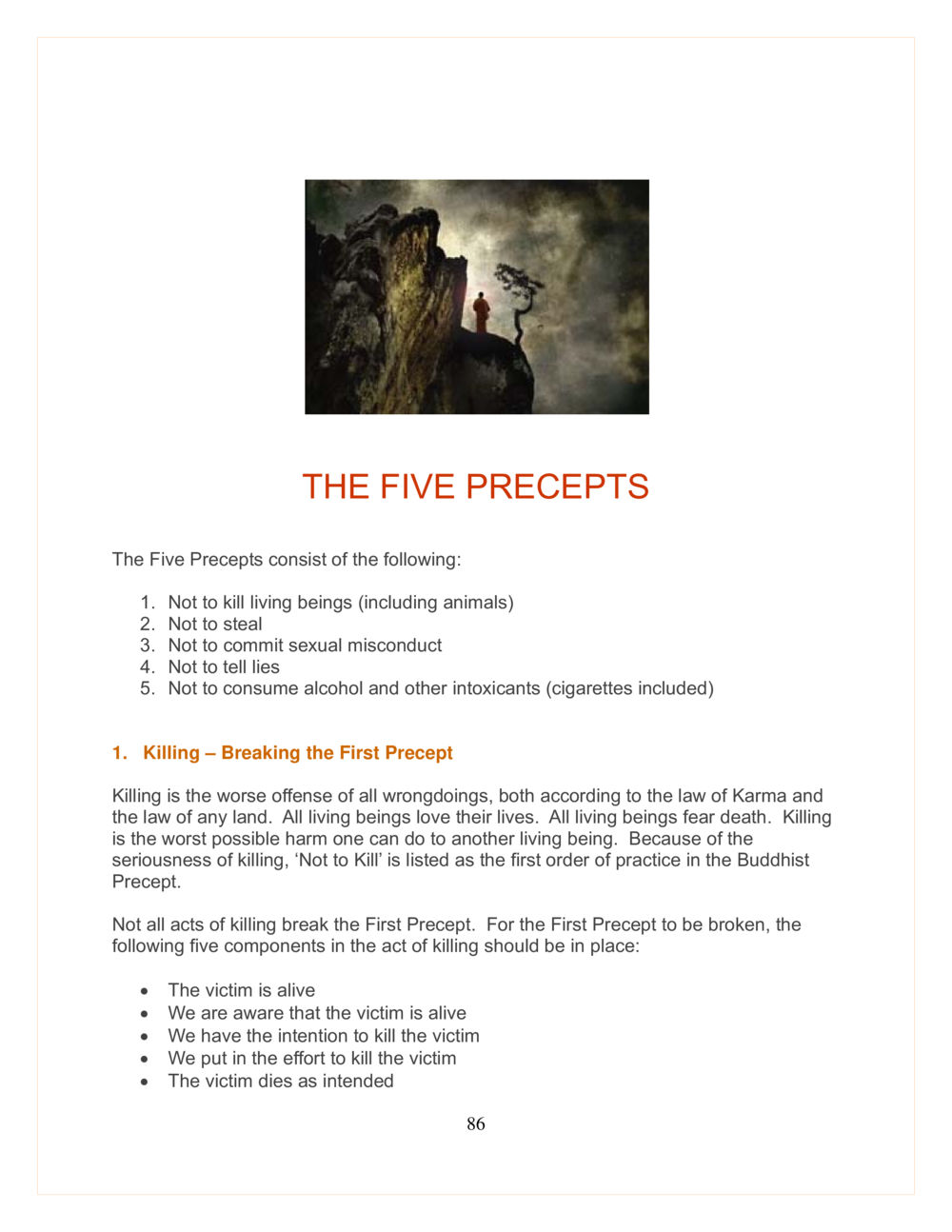The Five Precepts of Buddhism : หน้า 86/115
DMC Translor’s handbook : หน้า 86/115 An overview of the Five Precepts in Buddhism focusing on moral conduct and the consequences of killing.
0 ครั้ง

สรุปเนื้อหา
The Five Precepts in Buddhism outline ethical guidelines for practitioners, emphasizing respect for life among other moral behaviors. The First Precept, which prohibits killing, is noted as the gravest offense due to its harmful impact on all living beings. According to Buddhist teachings, to break this precept, certain conditions must be met: the victim must be alive, one must be aware of this, possess the intention to kill, actively attempt to do so, and ultimately cause the victim's death. Understanding these principles is vital for adherents seeking to live a compassionate life. For more resources, visit dmc.tv.
หัวข้อประเด็น
-Buddhist ethics
-First Precept
-Karma and moral actions
-Understanding killing in Buddhism
-Moral conduct guidelines
ข้อความต้นฉบับในหน้า
THE FIVE PRECEPTS
The Five Precepts consist of the following:
1. Not to kill living beings (including animals)
2. Not to steal
3. Not to commit sexual misconduct
4. Not to tell lies
5. Not to consume alcohol and other intoxicants (cigarettes included)
1. Killing – Breaking the First Precept
Killing is the worse offense of all wrongdoings, both according to the law of Karma and the law of any land. All living beings love their lives. All living beings fear death. Killing is the worst possible harm one can do to another living being. Because of the seriousness of killing, ‘Not to Kill’ is listed as the first order of practice in the Buddhist Precept.
Not all acts of killing break the First Precept. For the First Precept to be broken, the following five components in the act of killing should be in place:
- The victim is alive
- We are aware that the victim is alive
- We have the intention to kill the victim
- We put in the effort to kill the victim
- The victim dies as intended
หน้าหนังสือทั้งหมด
หนังสือที่เกี่ยวข้อง
Load More



















































































































